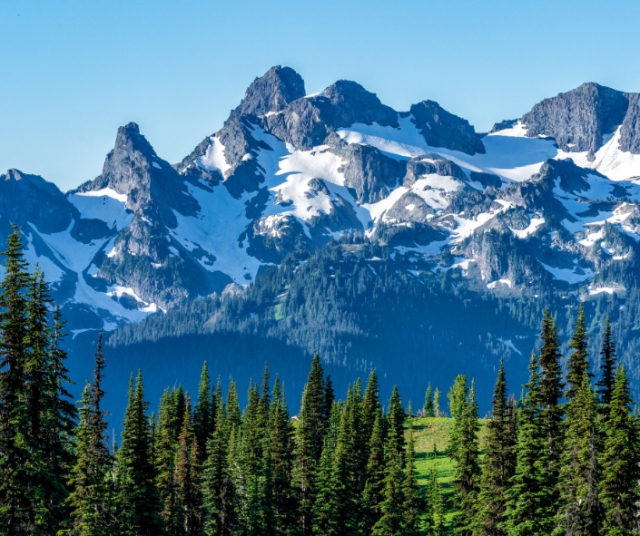Mountains, with their imposing presence and natural beauty, play a crucial role in shaping our planet. Not only do they represent a diverse ecosystem and a home for many species of flora and fauna, but they are also essential for human life. International Mountain Day , celebrated every December 11 since 2003, is a reminder of the importance of these majestic geographical features and an opportunity to raise awareness about the need to preserve and protect them.
Mountains, with their great altitude and majesty, play a fundamental role in the earth's ecosystem. They are often considered the guardians of biodiversity, hosting a surprising variety of flora and fauna that have evolved to adapt to their diverse habitats, from snow-capped peaks to deep, lush valleys.
These mountain ecosystems are true treasures of nature, hosting a wealth of unique species and contributing crucially to the health of the planet. Not only do they provide a home to numerous creatures, but they also act as regulators of the water cycle, capturing and slowly releasing the water that flows through their channels into the surrounding regions, preventing floods and droughts.
In addition to their ecological importance, mountains have been sources of inspiration for culture and spirituality around the world. In many civilizations, they are considered sacred and mystical places, and have played a vital role in religious beliefs and the creation of myths and legends. Artists, writers and philosophers throughout history have been attracted to the beauty and mystery of mountains, capturing their greatness in works of art, poetry and philosophy.
Despite their importance, mountains face significant challenges today. Climate change is wreaking havoc on these ecosystems, causing the loss of glaciers, increasing the risk of landslides and altering wildlife patterns. Human pressure on mountains through urbanization, mining, forest clearing and agricultural expansion is eroding their fragility. The sustainable management of mountains becomes essential to preserve their ecological and cultural wealth.
Mountains and Culture
Mountains are not only essential from an ecological perspective, but they also play an important role in the culture of many societies. They have been considered sacred in numerous religions and have been a source of inspiration for artists, writers and philosophers throughout history.
In many mountainous regions, local communities have developed unique cultures and traditions, adapted to their environment. Mountain agriculture, for example, has given rise to agricultural practices and soil management systems that are essential for the food security of local populations.
Challenges and Threats
Despite their importance, mountains face a number of challenges and threats. Climate change is affecting these ecosystems significantly, causing glacial retreat, increased risk of landslides and loss of biodiversity.
Human pressure on mountains is also constantly increasing. Urbanization, mining, forest clearing and agricultural expansion are having a negative impact on these fragile environments. Overpopulation and unregulated tourism can lead to the degradation of mountain landscapes and the loss of their cultural values.
Celebrating International Mountain Day
International Mountain Day gives us the opportunity to reflect on the importance of these ecosystems and take measures to protect them. Some of the ways we can contribute to mountain preservation include:
Promote awareness: Educating society about the importance of mountains and their challenges is crucial. Awareness is the first step to action.
Promote sustainable practices: Promoting sustainable agricultural practices and tourism in mountainous regions is essential to protect these fragile ecosystems.
Support research: Scientific research is essential to better understand mountains and their ecosystems, as well as to develop effective conservation strategies.
Participate in cleaning and restoration activities: Participating in cleaning and restoration projects in mountainous areas is a practical way to contribute to their conservation.
Advocate for conservation policies: Advocating for government policies that protect mountains and their ecosystems is essential.
Mountains are a natural treasure that we must appreciate and preserve for future generations. International Mountain Day is an occasion to remind ourselves that our responsibility towards these magnificent landscapes and their inhabitants is crucial. As we face the challenges of climate change and human growth, we must work together to ensure a sustainable future for our mountains and the entire planet.
